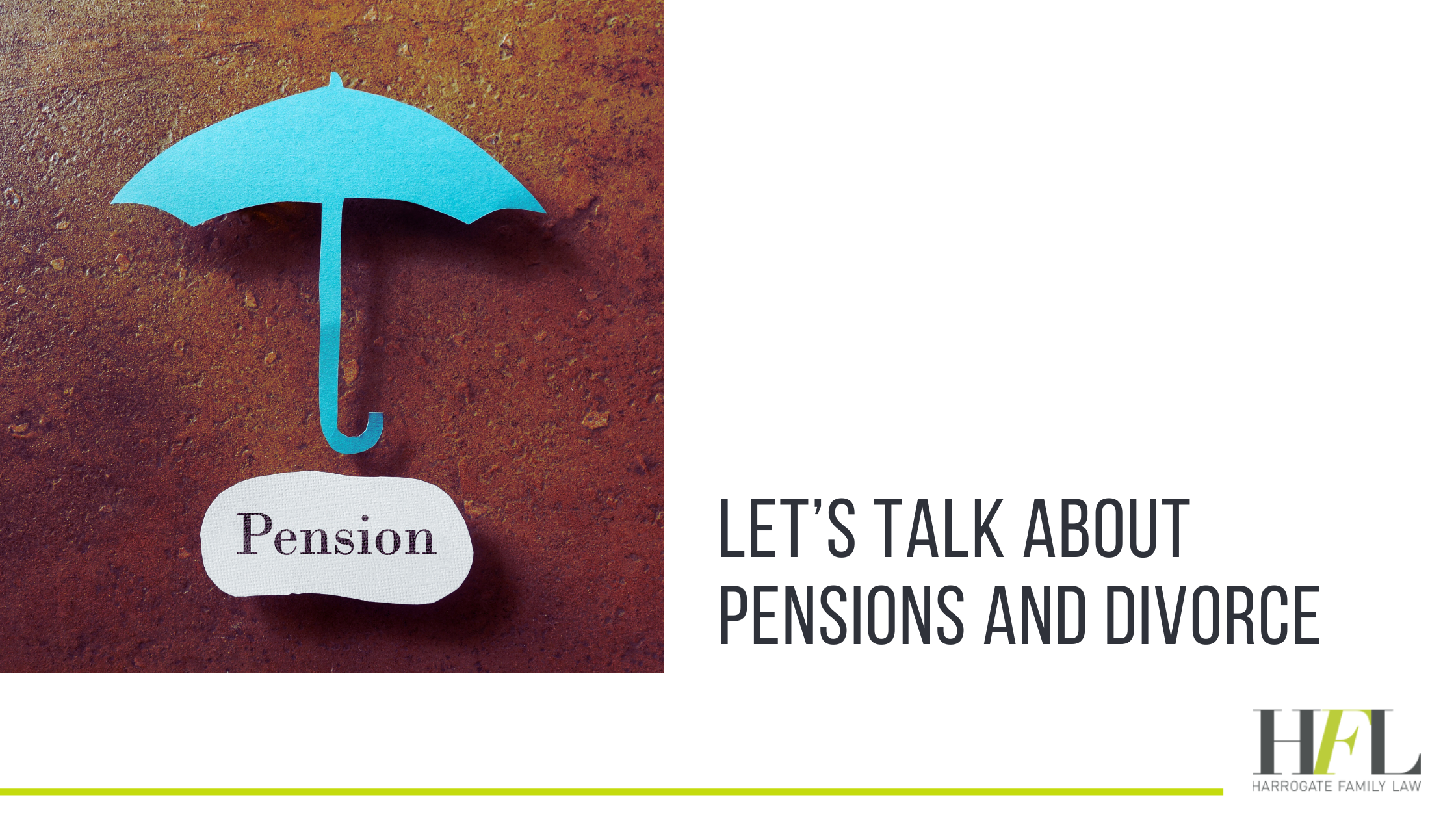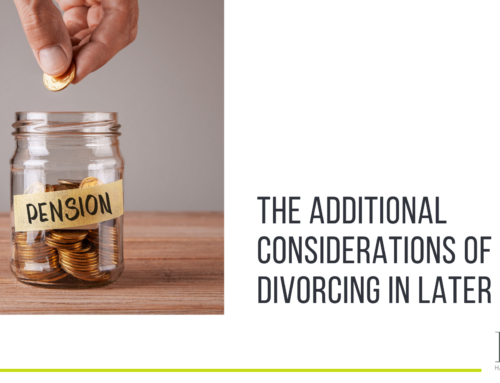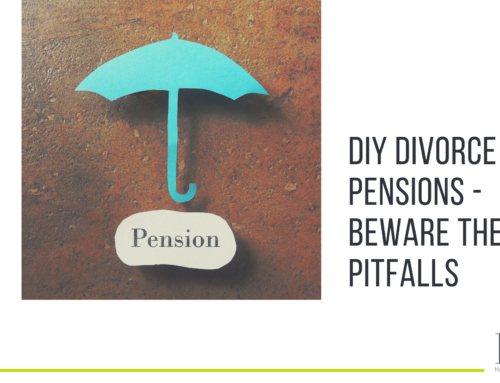Whether in the context of divorce or not, understanding the nature and importance of pensions can feel overwhelming, confusing and stressful.
During a divorce, the complexities associated with pensions can be even more pronounced, so much so that many clients overlook them and instead focus on retaining the more physical, tangible assets like the family and matrimonial home.
Pensions are often one of a couple’s most significant assets, even if you don’t intend to access them for several years. Clients frequently find out too late that disregarding a spouse’s pension is a costly mistake, and we’ll discuss why below*.
What are the consequences of disregarding the pension?
One of the biggest concerns when pensions are disregarded during a divorce, is the potentially severe and unfair wealth disparity that can arise.
The gender pension gap is a well-documented and genuine issue. It’s a problem that continues to result in one spouse, typically women, being far worse off during their retirement than their male counterparts.
In other situations, not considering the pension can leave clients vulnerable to their ex-spouse staking a claim on their pension at some point in the future. This is where (once again) prenuptial or postnuptial agreements are a worthwhile investment. When properly executed, with both parties having taken independent legal advice, pre and post-nuptial agreements make it easier to divide the assets in a way that’s agreed upon and fair while at the same time protecting the interests of each spouse.
The good news? There are options. Below, we touch on two of the most common. It’s important to stress that these are not the only things to consider, and seeking legal advice regarding your options regarding pensions during divorce is a must.
Pension sharing
Pension Sharing Orders (or PSOs) can only be granted by the family court as part of a court or consent order. They grant you a percentage of your spouse or partner’s pension, which will be transferred to a pension set up in your own name. This might be an existing pension or one you set up in readiness for the Pension Sharing Order upon completing your divorce.
How you withdraw your funds will depend on the pension scheme rules and any tax payable on the pension. Speaking to a financial advisor before making any decisions about your pension and retirement is always advisable, as they can advise on the best schemes and options for your particular circumstances.
A PSO will also protect you should anything happen to your former spouse, as your share of the pension will still be protected in the event of their death.
Pension offsetting
As the name suggests, pension offsetting involves one partner keeping a larger share of a different asset rather than getting a portion of the pension. For example, you might keep a larger share of the equity in the family home, or all of it, in return for leaving your spouse’s pension alone.
However, it’s worth noting that this arrangement is only possible if there are enough non-pension assets, the most common being properties.
Comparing the value of a future pension against a property or money you have immediately available can be extremely difficult. Advice from a financial advisor and a solicitor is necessary before you agree to an offset pension agreement. Your solicitor may also feel that it’s essential to seek the advice of an actuary, a pensions specialist.
If an agreement is advised and reached here, it’s still vital that the court grants a consent order. This will legally bind your agreement and make it enforceable.
Be pension-confident when it comes to your divorce. Always seek the help and support of a trusted solicitor and advisor before agreeing to what will happen to your pension in the future.
At Harrogate Family Law, we’re here to make those difficult conversations easier. For someone who’s in your corner every step of the way, contact us now.
* This article is for information purposes only and is not intended as legal advice. Please speak to a solicitor for the legal advice you need regarding pensions and divorce.






